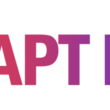As the first presidential primary rapidly approaches, there is growing concern about the potential problems that may arise at the ballot box. Alex Stamos, former chief security officer at Facebook and current adjunct professor at Stanford University’s Center for International Security and Cooperation, warns that generative AI could significantly amplify the spread of disinformation.
Stamos points out that what used to require a team of 20 to 40 individuals based in Russia or Iran to produce 100,000 pieces of misleading content can now be accomplished by a single person utilizing open-source gen AI. This shift raises alarm bells for Stamos and other security experts who predict a turbulent election year in 2024.
The upcoming year is set to witness a record number of elections, with over 2 billion people worldwide, including those in the U.S., EU, and India, expected to participate. However, the proliferation of technology and social media has also fueled the rapid dissemination of misinformation. Simultaneously, major tech companies have reduced election-protection measures through significant layoffs, eroding trust and safety teams.
Additionally, concerns surrounding online election interference were highlighted during two recent AI forums on Capitol Hill. Led by Sen. Chuck Schumer of New York, these forums involved lawmakers, industry executives, and privacy advocates. Schumer emphasized the profound impact of artificial intelligence on our world, stressing the need to expedite the development of AI regulations.
Megan Shahi, director of technology policy at the Center for American Progress, underscores that election interference poses a threat at every stage of the process. From manipulating public opinion to breaching voting systems and tampering with results, the risks are pervasive. Shahi also warns that ChatGPT, a popular language model, exacerbates existing vulnerabilities.
As the world braces itself for a landmark election year, the potential misuse of AI looms large. Urgent and comprehensive measures must be taken to address the escalating risks and safeguard the integrity of democratic processes.
After the troublesome events involving Cambridge Analytica in 2016, Meta took significant steps to improve its operations in 2018. However, as we approach 2024, new challenges arise for the company. Protecting the upcoming U.S. elections is a top priority for Meta, and it continues to lead the industry in integrity efforts.
Several experts, including Shahi and Stamos, have proposed various solutions to address these challenges. Meta, along with Microsoft Corp. and others, is already working on implementing some of these solutions. One such measure is the requirement for platforms to publish reports on how AI is used in content moderation and election risk-mitigation efforts, as well as any AI content issues encountered. Additionally, platforms should offer transparency regarding political advertisements.
To enhance transparency, Alphabet Inc.’s Google launched an ad transparency center earlier this year. Google reported that it blocked or removed over 5 billion problematic ads in 2022 alone.
In the coming year, Meta will take a proactive approach by mandating that advertisers disclose any digital manipulation or alteration of images, videos, or audio within ads on Facebook and Instagram.
However, the use of unlimited AI algorithms presents a challenge. Nation-state cybercriminals can exploit these algorithms to spread targeted disinformation, infect voting machines, and compromise voter-registration databases at an alarming speed. Casey Ellis, the Chief Technology Officer at cybersecurity firm Bugcrowd, emphasized this concern, quoting Winston Churchill: “A lie gets halfway around the world before the truth has a chance to get its pants on.”
Addressing these potential dangers, Jessica Furst Johnson, a lawyer specializing in online election integrity, acknowledged the unknown territory that lies ahead. The full extent of what AI can do remains uncertain until it actually happens.
In conclusion, preserving election integrity in 2024 requires vigilant efforts from platforms like Meta, as well as transparency initiatives and collaborative solutions across the industry. Only by staying proactive and adaptive can we combat the challenges posed by AI and misinformation that threaten the very foundations of our democratic processes.




